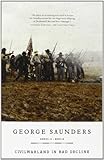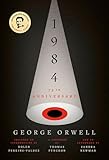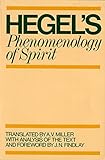 This winter, Millions contributors Emily Colette Wilkinson and Garth Risk Hallberg both happened to pick up the M.T. Anderson’s The Astonishing Life of Octavian Nothing, Traitor to the Nation. Via email, we conducted a bicoastal conversation about Octavian Nothing, Volume I: The Pox Party, which we’re sharing with you this week in three installments. Part 1 focused on Form and Style. Part 3 will focus on Audience, Character, and Conclusion. Please note that today’s installment contains plot spoilers.
This winter, Millions contributors Emily Colette Wilkinson and Garth Risk Hallberg both happened to pick up the M.T. Anderson’s The Astonishing Life of Octavian Nothing, Traitor to the Nation. Via email, we conducted a bicoastal conversation about Octavian Nothing, Volume I: The Pox Party, which we’re sharing with you this week in three installments. Part 1 focused on Form and Style. Part 3 will focus on Audience, Character, and Conclusion. Please note that today’s installment contains plot spoilers.
Part 2: Geographic and Historical Setting

 Garth: The setting of Octavian Nothing, Traitor to the Nation reminds me of one of George Saunders’ theme parks, CivilWarLand or Pastoralia. It could be real, but everything is slightly exaggerated or off in the way of good science-fiction. The rational philosophers of the College of Lucidity refer to themselves by number rather than name, for example, which works both as a cool detail and as a commentary on the humanistic blind-spots of the Enlightenment, which we discussed earlier. M.T. Anderson does the set piece very well, and in his capable hands, historical footnotes like the titular “pox party” become hallucinatory visions that work perfectly to dramatize the book’s central concerns.
Garth: The setting of Octavian Nothing, Traitor to the Nation reminds me of one of George Saunders’ theme parks, CivilWarLand or Pastoralia. It could be real, but everything is slightly exaggerated or off in the way of good science-fiction. The rational philosophers of the College of Lucidity refer to themselves by number rather than name, for example, which works both as a cool detail and as a commentary on the humanistic blind-spots of the Enlightenment, which we discussed earlier. M.T. Anderson does the set piece very well, and in his capable hands, historical footnotes like the titular “pox party” become hallucinatory visions that work perfectly to dramatize the book’s central concerns.
Emily: And one historical footnote in particular gets a lot of attention. Although the removal of Thomas Jefferson’s anti-slavery clause from the list of grievances against King George in the Declaration of Independence is hardly a historical revelation at this late date, I couldn’t help thinking that it is a crucial hovering presence in Anderson’s miscellany. Here’s the clause:
He has waged cruel war against human nature itself, violating its most sacred rights of life and liberty in the persons of a distant people who never offended him, captivating and carrying them into slavery in another hemisphere, or to incur miserable death in their transportation thither. This piratical warfare, the opprobrium of INFIDEL powers, is the warfare of the CHRISTIAN king of Great Britain. Determined to keep open a market where MEN should be bought and sold, he has prostituted his negative for suppressing every legislative attempt to prohibit or to restrain this execrable commerce. And that this assemblage of horrors might want no fact of distinguished die, he is now exciting those very people to rise in arms among us, and to purchase that liberty of which he has deprived them, by murdering the people on whom he also obtruded them: thus paying off former crimes committed against the LIBERTIES of one people, with crimes which he urges them to commit against the LIVES of an other.
In the end, it was cut because the Southern states wouldn’t sign a Declaration with a condemnation of slavery (thereby laying the groundwork for the Civil War).
Garth: This is totally fascinating, Emily. And it is a revelation, to me at least: I had no idea this was ever in the Declaration of Independence. I can see quite clearly now that much of the plot of the second half of Octavian, which is driven by a rumored alliance between American slaves and the English crown, is drawn not from the airy realms of authorial fancy, but, like so many other of Octavian’s seemingly absurd details, from Anderson’s research. Octavian would have been familiar with Horace’s poetics, wherein dramas were supposed to “instruct and entertain.” I think Anderson’s most effective instructional tool is letting us discover that the story’s seemingly science-fictiony details, which “shock the conscience,” are quite real. I want to flag, too, for future discussion, the sensibility Jefferson reveals in that deleted clause. Is he a rank hypocrite? Or is he – rather more appallingly – quite like us (although a much better writer, unless “us” includes M.T. Anderson)? Jefferson’s commitment to the sanctity of “life and liberty” strikes me as deeply felt, the contempt for “this execrable commerce” not merely rhetorical. And yet the force of Jefferson’s sentences is: Get off our back, George, and stop meddling with our slaves.
Emily: Yes – the idea of “profit and delight” (to use an 18th-Century phrase often invoked with specific reference to miscellanies) is, I think, at the core of Anderson’s poetics. Octavian’s life as Anderson tells it is absolutely engrossing – entertaining – and it gives appalling force to the profound contradiction inherent in the American Revolution and the founding of the American Republic: A nation that upheld itself as particularly invested in personal freedom and liberty was also a nation of slave-holders. Octavian is less “Traitor to the Nation” than betrayed by it. 
 In one of the most intellectually frightening scenes of the book, Octavian’s captors – rationalists to the end, even as they are hypocrites – explain to him that there is no contradiction between their commitments to “the cause of Liberty” and to keeping slaves. They explain that the freedom the revolution seeks to ensure is the freedom of exchange (capitalism), rather than some more abstract, philosophical freedom that would require the freeing of slaves. The scene is on par with Orwell or Kafka – the rational irrationality, the rational cruelty, the commitment to cold, abstract principals when the hideous inhumanity those principals inflict screams out for recognition.
In one of the most intellectually frightening scenes of the book, Octavian’s captors – rationalists to the end, even as they are hypocrites – explain to him that there is no contradiction between their commitments to “the cause of Liberty” and to keeping slaves. They explain that the freedom the revolution seeks to ensure is the freedom of exchange (capitalism), rather than some more abstract, philosophical freedom that would require the freeing of slaves. The scene is on par with Orwell or Kafka – the rational irrationality, the rational cruelty, the commitment to cold, abstract principals when the hideous inhumanity those principals inflict screams out for recognition.
Garth: As a scholar of the 18th Century, you know a lot more about this than I do. Do you think this explicit argument about “freedom of exchange” is as historically accurate as the other elements of the book?  Of course it’s implicit in “no taxation without representation,” but were pluralities of revolutionaries making it the fundament of their concept of natural rights? (If so, I shudder to think what the “strict constructionists” on the Supreme Court would do with this.) Because it really does seem like Jefferson’s “liberty,” enshrined in the Declaration and even the deleted clause above, is much more expansive than that. My bleeding-heart sense of the thing is that Jeffersonian “liberty” is like Hegel’s “spirit” or like divine love in The Bible – a universal principle that, as history progresses, comes closer and closer to being realized in the world. Until heaven is at hand, we struggle and contradict ourselves and do our best to explain away our blind spots. This is going to tie in to some things I want to say about character in the third part of our discussion, but I wanted to give you a chance to jump in and comment here.
Of course it’s implicit in “no taxation without representation,” but were pluralities of revolutionaries making it the fundament of their concept of natural rights? (If so, I shudder to think what the “strict constructionists” on the Supreme Court would do with this.) Because it really does seem like Jefferson’s “liberty,” enshrined in the Declaration and even the deleted clause above, is much more expansive than that. My bleeding-heart sense of the thing is that Jeffersonian “liberty” is like Hegel’s “spirit” or like divine love in The Bible – a universal principle that, as history progresses, comes closer and closer to being realized in the world. Until heaven is at hand, we struggle and contradict ourselves and do our best to explain away our blind spots. This is going to tie in to some things I want to say about character in the third part of our discussion, but I wanted to give you a chance to jump in and comment here.
Emily: Freedom of exchange was definitely a part of the impetus for the revolution. As with so many other revolutions of this age (the English Civil War, the French Revolution) and others after it, the American Revolution began in practical, material grievances – issues like the stamp tax and England’s refusal to allow colonists to appoint their own governors. But this is not to deny a genuine intellectual and emotional commitment to the abstract ideal of freedom among the revolutionaries, or the reality that some believed the revolution would bring an end to slavery, and that there was a Christian imperative to end slavery. We see this view represented in Anderson’s book by Evidence Goring, a young American soldier who befriends Octavian. Goring believes that “slavery and subjugation shall soon fall away” and offers a gruesome vision of the fate that awaits slaveholders:
And God shall curse those who hold their fellow Men as Slaves; and in the Last Day, they shall know Weeping, when Christ comes striding from the Skies, Hands drizzling His Blood, Eyes filled with a Sorrow at what He must do: For then they shall remain enchained to this Flesh, hobbled with Bone, when the Rest are released from their Gross Bodies into the hallowed Air.
In this vision of Goring’s, which borrows the language and tone of Revelations, there are, perhaps, intimations of your ideas about Hegel? This vision also censures the kind of materialism that Octavian’s owners defend, the kind of materialism that puts property, particularly human property over liberty in the famous Revolutionary slogan “liberty and property.” Those who value material property, human property, bodies, above liberty, will never achieve transcendence.








